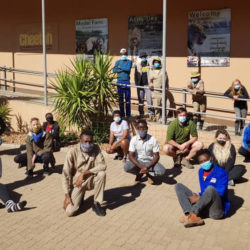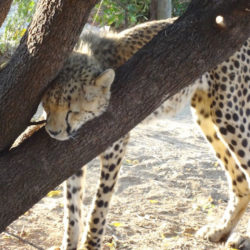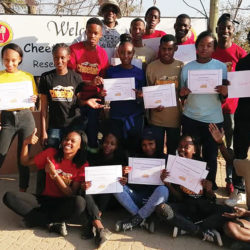Sharing Environmental Education Programmes at the NEEN Conference
-
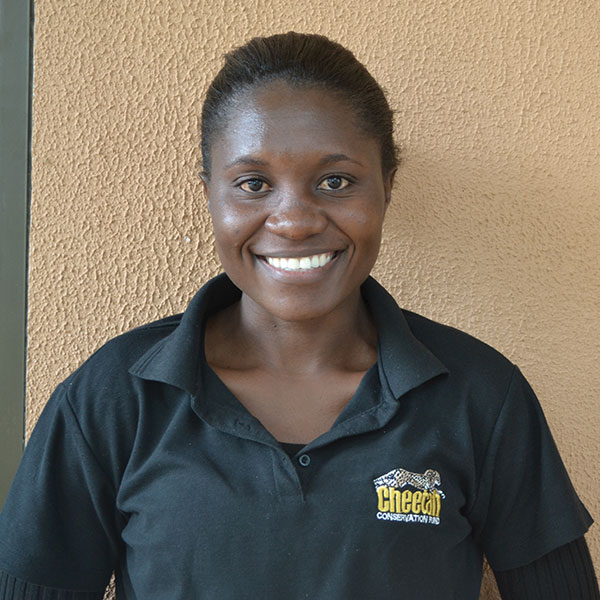
- by Annetjie Pöntinen May 9, 2018
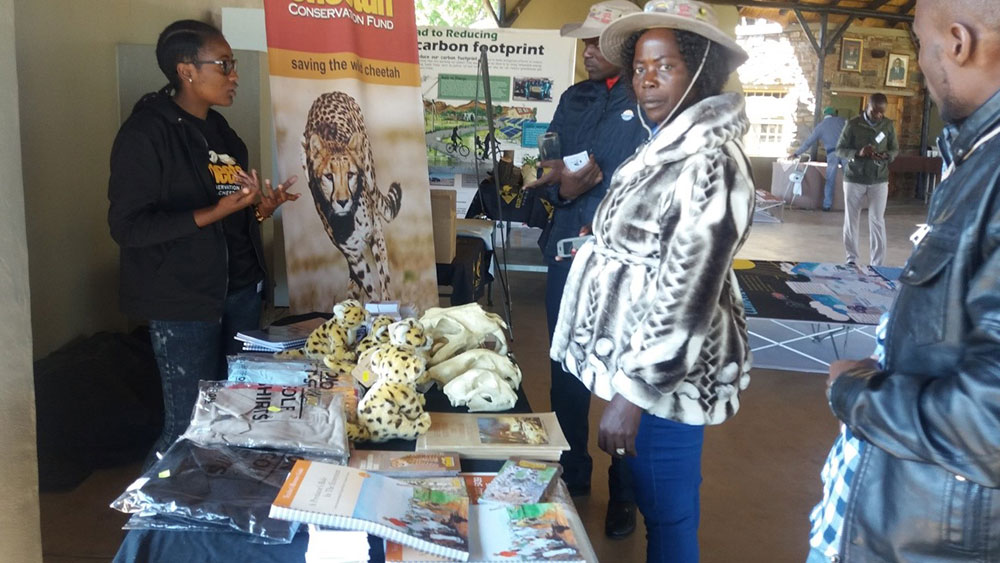
Cheetah Conservation Fund (CCF) attended the annual Namibia Environmental Education Network (NEEN) Conference, which was hosted by B2Gold Mine Namibia, at the Otjikoto Nature Reserve and Environmental Education Centre from 3 – 6 May.
The conference brought together 118 participants from various ministries and non-governmental organisations, all passionate about environmental education. The theme of the four-day conference was, ‘Innovative strategies do develop peaceful co-existence with the endangered wildlife.’ I gave a PowerPoint talk on how CCF uses use environmental education to promote non-lethal strategies for peaceful co-existence with cheetah and other predators. Elizabeth Pius, CCF intern, manned our exhibition table. She answered questions on all aspects of CCF’s work, and presented CCF’s educational materials.
During my presentation, I highlighted CCF’s primary call-to-action for cheetah range countries – the need for peaceful co-existence with the cheetah. With fewer than 7,100 cheetah left in the world, and only about 3,500 of those cheetahs living in Namibia, the need for peaceful co-existence is very important. This message is directed not only to the farming and business communities, but to the younger generations. CCF works to bring our education outreach to everyone and we especially want to reach more young people in the hopes that they will become conservationists, scientists, and educators.
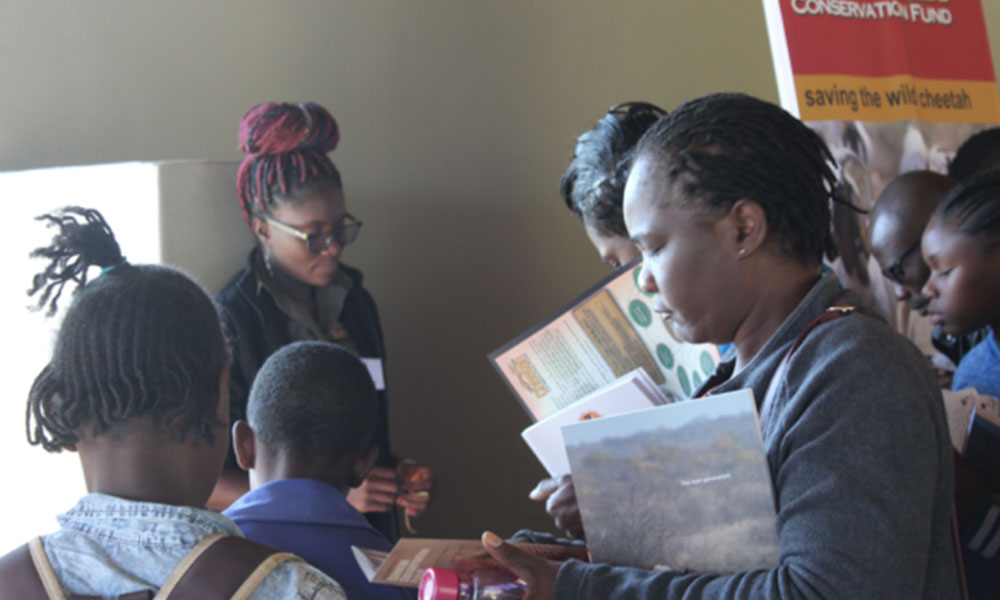
I also emphasized the importance of CCF’s Livestock Guarding Dog (LGD) programme that has been in existence for 24 years, and how it has helped Namibian farmers to be tolerant of predators on their land, and therefore co-existence. In most cases, farmers do not understand the beneficial role predators play in their ecosystems, and through our LGD and environmental education programmes, farmers have not only become tolerant, but they come to understand why co-existence is important – people only conserve what they understand. People were very interested to learn more about CCF’s Bushblok, and our Model Farm and were impressed with the range of different strategies in place to promote non-lethal co-existence with cheetah and other predators.
The Teacher’s Resource Guide produced by CCF for teachers and environmental educators, and their students, is a fantastic resource that we use to help educators incorporate and teach about the role of predators in the ecosystem. I circulated the book (which is a solid 284 pages) and explained how teaching about predators is cross-curricular. There are lessons in the Teacher’s Resource Guide that apply across many subjects. Teachers can help CCF raise awareness on the vulnerable cheetah and achieve key educational goals within their subjects. There is a lesson for every educator to present to their students, whether their interest is in science, math or art. After the presentation, teachers, environmental educators, and students stopped at the CCF exhibition for more information on the Teacher’s Resource Guide, and how they can get a copy. Twenty-five copies of the book were given to interested participants and we are excited to see how the books will be used.
We also took the opportunity through the presentation and exhibition, to promote our Future Conservationists of Africa environmental education programmes, which include our Centre-based and outreach programmes. An invitation was extended to all conference participants (especially teachers and their students) to visit our CCF Research and Education Centre to learn about the cheetah and its environment first-hand.
At the closing of the conference I was incredibly honored to be elected as NEEN Regional Representative, and secretary of this committee. NEEN was founded in 1995, and CCF is a founding member. CCF staff have carried the role as secretary many times in the past years, so I was happy to join that line and keep our involvement strong. NEEN aims to promote and share information on environmental education, and strengthen the professional capacity of its members. With the secretarial role, we will continue to promote CCF’s work while learning from what other members are doing to enhance environmental education in their regions, and across the country. We are all very excited to move forward after this conference and keep building up our environmental education efforts.
Related Reading
-
June 1, 2020
Two Trainings at CCF -
May 11, 2020
How Cheetahs Check Their Messages?

